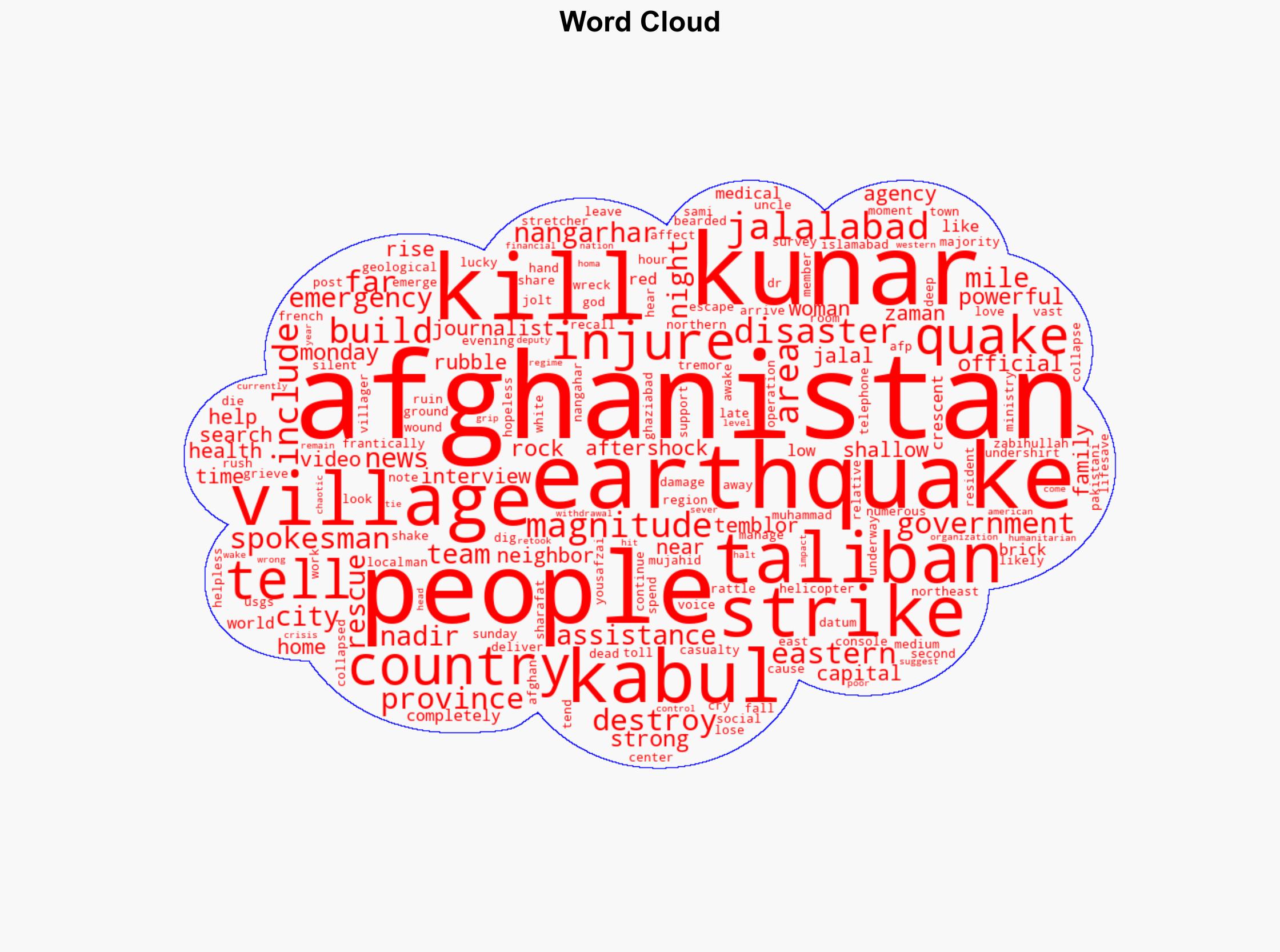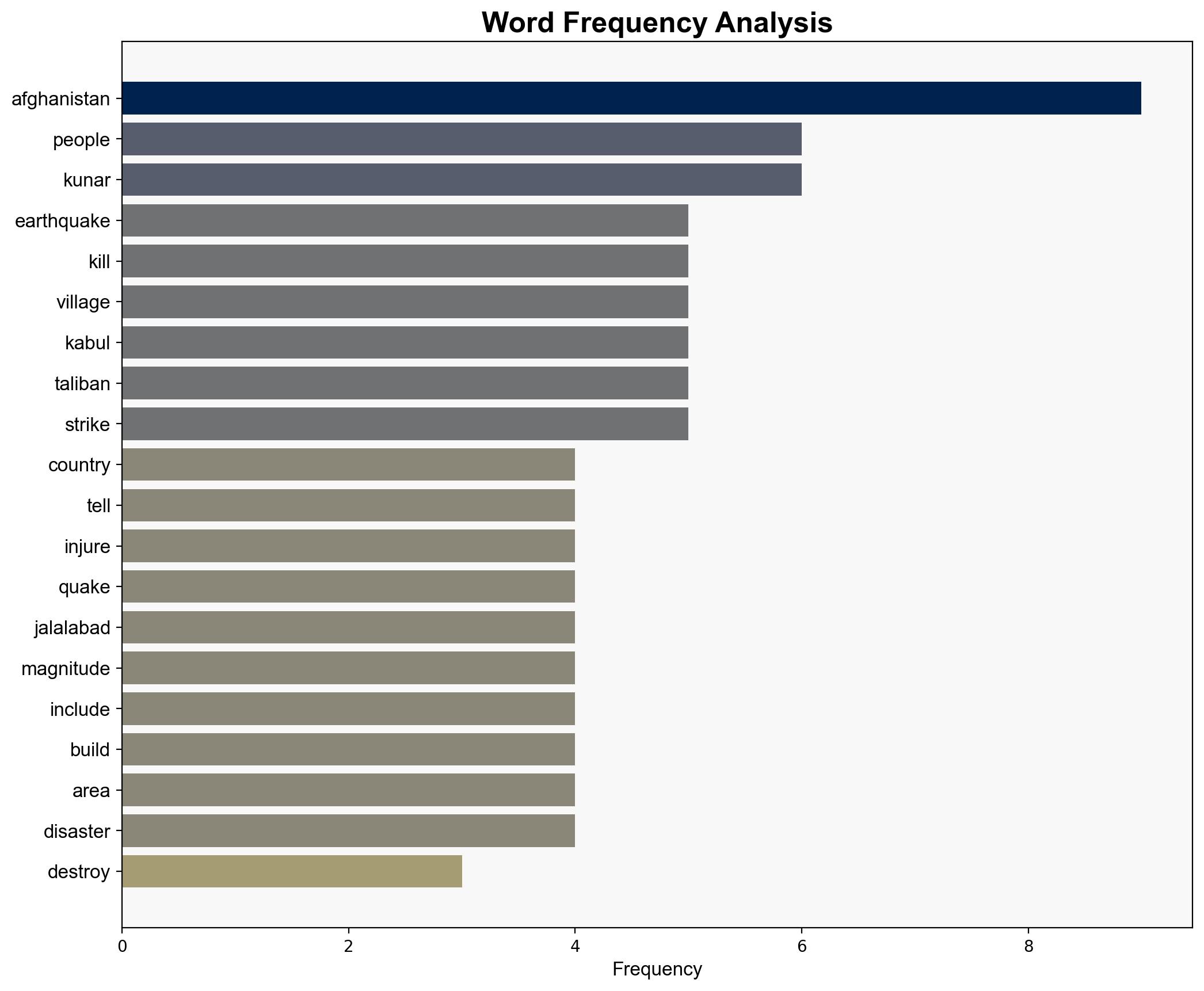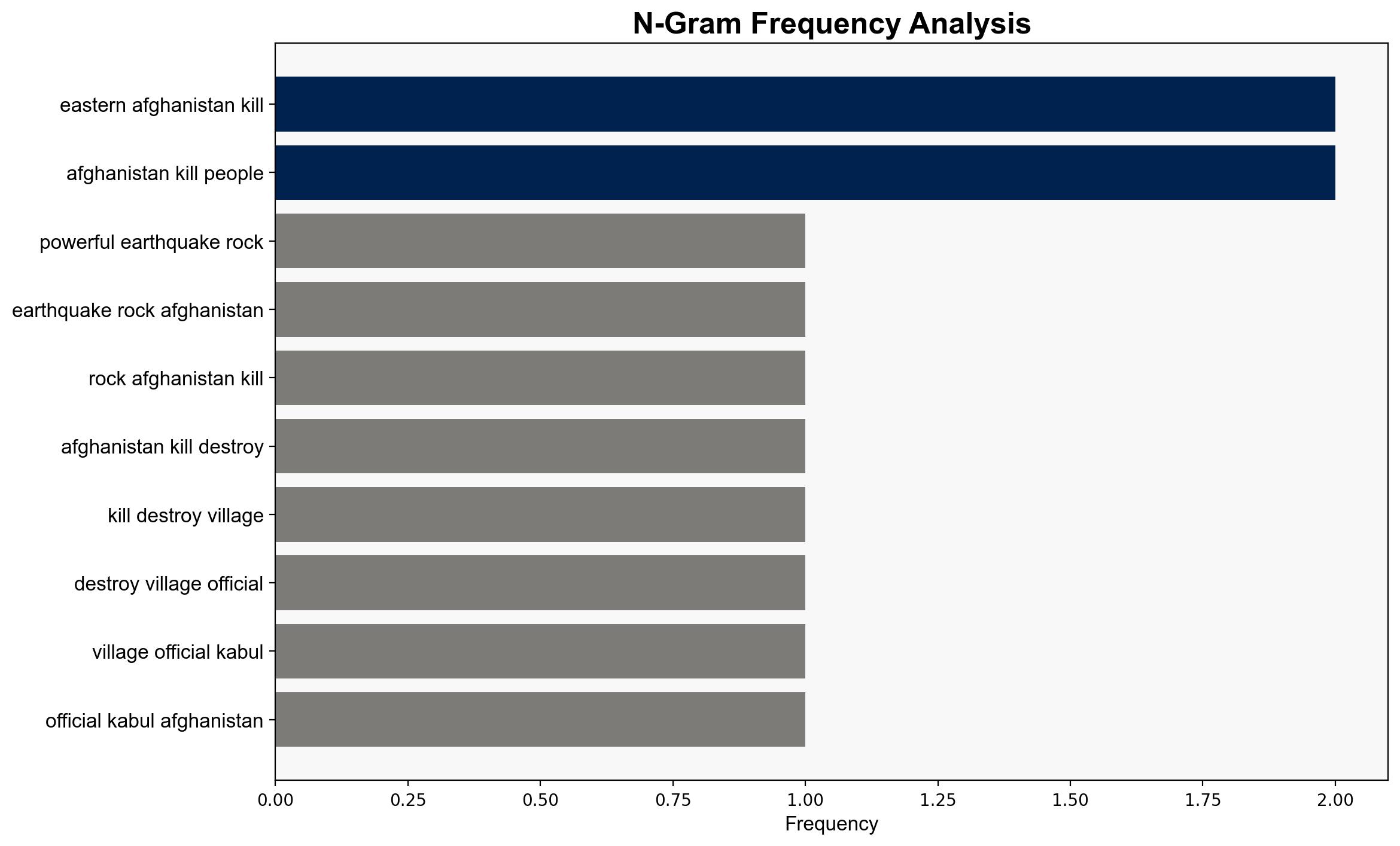Afghanistan shaken by 60 magnitude earthquake near Pakistan border – CBS News
Published on: 2025-08-31
Intelligence Report: Afghanistan shaken by 60 magnitude earthquake near Pakistan border – CBS News
1. BLUF (Bottom Line Up Front)
The earthquake in Afghanistan has exacerbated the country’s existing humanitarian crisis, with significant casualties and infrastructure damage in Kunar and Nangarhar provinces. The most supported hypothesis is that the earthquake will further destabilize the region, complicating humanitarian aid efforts and potentially increasing regional tensions. Confidence Level: Moderate. Recommended action includes immediate international humanitarian support and strategic engagement with regional actors to facilitate aid delivery.
2. Competing Hypotheses
1. **Hypothesis A**: The earthquake will lead to increased instability in Afghanistan, worsening the humanitarian crisis and potentially leading to regional tensions as resources become scarce.
– **Supporting Evidence**: Significant casualties and infrastructure damage reported; ongoing humanitarian crisis; limited international aid due to political isolation.
2. **Hypothesis B**: The earthquake will prompt increased international humanitarian intervention, leading to temporary stabilization and improved relations with the Taliban government.
– **Supporting Evidence**: Urgent need for aid may compel international actors to engage; historical precedence of disaster-driven cooperation.
Using ACH 2.0, Hypothesis A is better supported due to the current geopolitical climate and the Taliban’s strained relations with the international community, which may hinder effective aid delivery.
3. Key Assumptions and Red Flags
– **Assumptions**: The Taliban government will allow and facilitate international aid; regional actors will not exploit the situation for political gain.
– **Red Flags**: Potential underreporting of casualties; lack of transparency in aid distribution; geopolitical tensions affecting aid delivery.
– **Blind Spots**: The full extent of damage is not yet known; potential for aftershocks to exacerbate the situation.
4. Implications and Strategic Risks
– **Economic**: Destruction of infrastructure will impede economic recovery and exacerbate poverty.
– **Geopolitical**: Strained relations with neighboring countries could lead to border tensions; potential for increased refugee flows.
– **Psychological**: Heightened trauma and despair among affected populations, potentially leading to radicalization.
– **Cascading Threats**: Disruption of aid could lead to civil unrest; increased vulnerability to extremist exploitation.
5. Recommendations and Outlook
- Immediate coordination with international humanitarian organizations to deliver aid.
- Engage regional powers to facilitate cross-border aid delivery and prevent escalation.
- Scenario Projections:
- Best Case: Effective international aid stabilizes the situation, improving relations with the Taliban.
- Worst Case: Aid is obstructed, leading to increased instability and regional conflict.
- Most Likely: Limited aid delivery with ongoing humanitarian challenges and regional tensions.
6. Key Individuals and Entities
– Zabihullah Mujahid
– Muhammad Jalal
– Dr. Sharafat Zaman
– Homa Nadir
7. Thematic Tags
national security threats, humanitarian crisis, regional stability, disaster response





